
A New Way to Dinner, co-authored by Food52's founders Amanda Hesser and Merrill Stubbs, is an indispensable playbook for stress-free meal-planning (hint: cook foundational dishes on the weekend and mix and match ‘em through the week).
Order nowPopular on Food52
Continue After Advertisement
161 Comments
shynewilliams
June 21, 2012
oh, the headaches of SEO. lol congratulations, though...I've been checking out this site for a while now and it's now my top two on my top five favorites list :)
I wonder if gourmetrecipe.com and gourmandia.com will ever be famous on Google's search engine too...they're my top one and three :)
I wonder if gourmetrecipe.com and gourmandia.com will ever be famous on Google's search engine too...they're my top one and three :)
MrsMehitabel
September 12, 2011
Kavi,
I read this article and your comments a while ago, and it occurs to me that it might be possible, among the other search tools, to simply let searchers to choose to only see results that appear on blogs. I only cook from blog recipes, since there's more description and I'm likely to get a better idea of what the result is like, and what the writer's tastes are.
I read this article and your comments a while ago, and it occurs to me that it might be possible, among the other search tools, to simply let searchers to choose to only see results that appear on blogs. I only cook from blog recipes, since there's more description and I'm likely to get a better idea of what the result is like, and what the writer's tastes are.
MrsMehitabel
September 12, 2011
Kavi,
I read this article and your comments a while ago, and it occurs to me that it might be possible, among the other search tools, to simply let searchers to choose to only see results that appear on blogs. I only cook from blog recipes, since there's more description and I'm likely to get a better idea of what the result is like, and what the writer's tastes are.
I read this article and your comments a while ago, and it occurs to me that it might be possible, among the other search tools, to simply let searchers to choose to only see results that appear on blogs. I only cook from blog recipes, since there's more description and I'm likely to get a better idea of what the result is like, and what the writer's tastes are.
zoomse
July 7, 2011
after reading your article i;ve checked the google recipes and i think google is killing the food culture. why use google recipes when there are plenty of excellent websites/blogs about recipes, cooking..
http://www.americancookingrecipes.com
http://www.americancookingrecipes.com
zoomse
July 7, 2011
after reading your article i;ve checked the google recipes and i think google is killing the food culture. why use google recipes when there are plenty of excellent websites/blogs about recipes, cooking..
http://www.americancookingrecipes.com
http://www.americancookingrecipes.com
dbcurrie
April 17, 2011
I think that a lot of people are seeing that the recipe search feature isn't finding the recipes they want, whereas the broader search works better. Which is fine. If the recipe search doesn't work, people won't use it. Or maybe they'll search both ways. Most people aren't going to know WHY the results are different and they aren't going to care. They'll just choose to use the one that works better for them. I'm betting that since so many smaller bloggers aren't going to be able to invest the time in coding their recipes, those results will always be different. If there's some semi-automated way to do it, I might go for it. As it is, though, I don't have infinite time. My priority is putting out good content, not finicky coding that's probably not going to make a difference.
Creative C.
April 17, 2011
The burning question I was hoping Kavi would answer? How long once we comply and submit our pages that have passed the test can we expect to see our site in the results? I've got one post in particular I use to check and it's funny...how far off the mark those recipe search results become in the 12 pages of results that do show. Not ONE result comes back with the search term I use in those twelve pages. I can find a torte, a martini and more but nothing that hits the mark in my search for a particular cake. Calories and prep times aside, how relevant can that be?
boulangere
April 17, 2011
I've had the same experience, and I just don't use Google's recipe search for that reason. As many have noted, I use food-specific sites instead.
vavroom
April 12, 2011
I blog about food and post recipes. From the outset I decided to not use a "food blog" format - I kept recipes as recipes and blog posts as blog posts. From the outset I started using hRecipe format. This was before Google announced that they were going to look at using Rich Snippets for a recipe search.
I defended Google when bloggers started being upset about the calories and cooking times - I understand that these are a reflection of what people look for - regardless of risks of developing a culture or not.
I argued that if you want to publish a cookbook, you need to have a certain know-how about book writing and publishing and if you don't have that knowledge, you can hire someone. In the same way, if you want to publish recipes and information about food on the web, you should expect to have a certain level of technical knowledge about web publishing. If you don't, you can hire someone.
I still stand by all that.
But I really wonder what's going on with Google Recipe search - as others stated, it isn't returning results. My recipes make the Google recipe rich snippet testing tool happy. But if I use the recipe search on google, I am unable to get any of my recipes - even if I search on the exact title of the recipe. The same search on "generic Google" returns my site in the top 3 results.
Kavi, thank you for your comment - it's good to see that someone at Google is listening. But can you, or someone else from Google, explain why sites using hRecipe are not being returned? Even when the microformats were implemented months before it was announced Google would use the format?
I defended Google when bloggers started being upset about the calories and cooking times - I understand that these are a reflection of what people look for - regardless of risks of developing a culture or not.
I argued that if you want to publish a cookbook, you need to have a certain know-how about book writing and publishing and if you don't have that knowledge, you can hire someone. In the same way, if you want to publish recipes and information about food on the web, you should expect to have a certain level of technical knowledge about web publishing. If you don't, you can hire someone.
I still stand by all that.
But I really wonder what's going on with Google Recipe search - as others stated, it isn't returning results. My recipes make the Google recipe rich snippet testing tool happy. But if I use the recipe search on google, I am unable to get any of my recipes - even if I search on the exact title of the recipe. The same search on "generic Google" returns my site in the top 3 results.
Kavi, thank you for your comment - it's good to see that someone at Google is listening. But can you, or someone else from Google, explain why sites using hRecipe are not being returned? Even when the microformats were implemented months before it was announced Google would use the format?
minsrecipes
April 5, 2011
I had almost completely given up on searching for a decent recipe any more. Then a friend told me about foodily.com Check it out. It's still not what I would consider the best, but better than the alternative.
Ms. T.
April 6, 2011
Foodily is a GREAT concept, but they still have a lot of work to do on the search filters to bring it up to speed and make it a really efficient and effective way to search recipes. I'm crossing my fingers that they're still working out the kinks and will introduce some improvements soon.
LaurieConstantino
April 4, 2011
Excellent article. As a food blogger, I've been very frustrated by recipe search. For many of the reasons articulated here. But also because I've gone to the time-consuming trouble of changing my entire process of adding recipes so that I can insert proper coding for google recipe search. (Had to pay a computer professional to help me do this.) The recipes pass the test as properly formatted using google's rich snippets testing tool. Even so, none of my recipes show up in Google's recipe search. Not one. Not ever. Make that very very very frustrated.
Amy S.
April 4, 2011
well said! We just need to keep this out there where they will hear and see it. There truly is strength in numbers folks!
Isn't that the American Way?
AmyRuth
Isn't that the American Way?
AmyRuth
Cooking I.
April 4, 2011
With Google driving the recipe search, recipes will become more generic and lose their wonderful regional differences. Often the top recipe results. i.e., the top of the list, are basically the same thing.
Kathleen
Kathleen
thomasw
April 3, 2011
Kavi wrote:
So, the traffic impact to any site that doesn't yet appear in recipe view is minimal, if any.
---
We have a site that's been around since 1994 and under the same domain since 1996. Over the past few years we have kept daily and monthly records from a variety of statistical sources, including Google Analytics, Quantcast and StatCounter. Each year for the past several years our traffic has steadily increased.
Since the Google search algorithm change in February our site traffic, which once averaged 20,000 pageviews per day, went down 25% per day, compared to previous weeks and previous years. That 25% drop is amazingly consistent each day and the drop is all attributable to a loss of traffic generated by Google search.
Like most other small sites, we do not have the manpower to go back through the thousands of recipes we have online and update them for metadata. (I heard via Prof. Jeff Jarvis, author of "What Would Google Do?" that back in the 90's Epicurious employed monks to manually convert all their recipes from the CondeNast magazines Gourmet and Bon Appetit into html. Dear God, maybe that's the answer!)
But the metadata issue did not affect us until February 2011 -- if that was the reason our site suddenly lost Google "juice." I have personally checked a number of our recipes that used to rank on the first page of results -- most, but not all, have been bumped down by corporate sites' similar recipes.
It is difficult to analyze what caused our site's drop when we have followed the same methods for presenting original content for so many years and have seen steady growth. I have noted little empirical evidence that the content farms, or the sites that scrape others content, have been impacted by the new search algorithm.
So, the traffic impact to any site that doesn't yet appear in recipe view is minimal, if any.
---
We have a site that's been around since 1994 and under the same domain since 1996. Over the past few years we have kept daily and monthly records from a variety of statistical sources, including Google Analytics, Quantcast and StatCounter. Each year for the past several years our traffic has steadily increased.
Since the Google search algorithm change in February our site traffic, which once averaged 20,000 pageviews per day, went down 25% per day, compared to previous weeks and previous years. That 25% drop is amazingly consistent each day and the drop is all attributable to a loss of traffic generated by Google search.
Like most other small sites, we do not have the manpower to go back through the thousands of recipes we have online and update them for metadata. (I heard via Prof. Jeff Jarvis, author of "What Would Google Do?" that back in the 90's Epicurious employed monks to manually convert all their recipes from the CondeNast magazines Gourmet and Bon Appetit into html. Dear God, maybe that's the answer!)
But the metadata issue did not affect us until February 2011 -- if that was the reason our site suddenly lost Google "juice." I have personally checked a number of our recipes that used to rank on the first page of results -- most, but not all, have been bumped down by corporate sites' similar recipes.
It is difficult to analyze what caused our site's drop when we have followed the same methods for presenting original content for so many years and have seen steady growth. I have noted little empirical evidence that the content farms, or the sites that scrape others content, have been impacted by the new search algorithm.
cookscorner
April 3, 2011
AntoniaJames: not all small sites are blogs. Some are "regular" websites created by individuals who have chosen the website format instead of the blog format.
Amanda H.
April 2, 2011
Kavi, thank you for taking time to weigh in and to thoughtfully explain how your team at Google is approaching recipe search. It's clearly not an easy issue to tackle -- but it's a really important one. I look forward to future improvements. Thanks, all, for your continuing discussion -- keep it up! And thank you for tolerating our lack of paragraph breaks -- we're finishing up a big project (will announce soon) and once that's done, we'll get this fixed!
dbcurrie
April 1, 2011
betterirene, if you find your recipes on someone else's site, the first thing to do is contact the blogger and ask for it to be taken down. If they don't take it down, you can contact the site host and have the whole site taken down. It's drastic, but it would get the point across. The other thing is that if your content is swiped, there's a good chance that you'll find other bloggers' content there as well. If you find that, contact the other bloggers and inform them. If enough complain, it might make a difference. I recently found a site like that and contacted about a dozen bloggers and a couple of larger publications. The site has since been cleaned up. If you do want to pursue getting a site taken down and it's just your content that has been swiped, there are people who will help you with that (for a fee) but I also found some very helpful "do it yourself" instructions.
dory
April 1, 2011
This google search feature combines with the Food Network's new plethora of "good cooking" contests which in which chefs, or aspiring chefs compete against a time clock to create supposedly appetizing food that is made in under -------------(fill in the blank) minutes. Anyone who pays a little extra attention to detail or who uses a traditional technique that takes more than a couple of minutes to prepare is automatically eliminated-- usually in a very painful way. This contributes to an evolving food "culture" (forgive the irony) that implies that all good food can/should be made in 30 minutes or less, often using pre-packaged and processed ingredients. As someone who values traditional recipes, and who prepares many foods that take long cooking times, but allow me to do other tasks in my house while cooking, (bean soup, or pot roast anyone?) I find this deeply disturbing. What a longs ways we have come from Julia Child on public TV. I don't think all recipes should be pretentious or take all day, but where is the room for cooking as a relaxed process?
Dory
Dory
betteirene
April 1, 2011
I don't blog. To do it right and to do it well is too much like work. That's one of the reasons I love food52: it's fun here, not work, and I'm perfectly content to ride A&M's coattails. Once I've decided to submit a recipe here, I do a search to help me make sure that I haven't inadvertently plagiarized someone else's work. How embarrassing it would be to get accused of stealing! (Although, given my age, my recipes probably are the original, teehee.) It's maddening to be linked to the exact same recipe (including typos) with the exact same photo (usually "stolen" from wikipedia) three different times on the first page of the search results. So. . .what do you do when that recipe is yours? What recourse do you have?
Panfusine
April 1, 2011
love the statement, riding on A & M's coattail....perfectly describes what a lot of us are so happy doing, this community aspect of food52 can't get better & I don't want to explore beyond this on Google, So there Google you can keep your imperfect search engine!
Nancy
September 25, 2019
betteirene - coming late to this party from another related thread, but to your question about what to do if one's own recipe turns out to be published elsewhere. I find two solutions...compare mine to the published ones. If different enough, upload mine, note sources and differences. If they are so close as to make no difference, I might write to one of the editors and suggest they highlight or publish (with permission) the earliest or best version of the dish.
midnitechef
March 31, 2011
I had no idea Amanda! Technology is only as great as the human who made it, this is certainly true for Google in this instance. The search engine doulas gave birth to something of a Frankenstein for foodies. The way you've described it, I agree that Americans will have less healthy meals prepared at home if they have no clue about how to calculate (or estimate) calories. On my blog I had one person request calorie totals of my recipes, I do try to remember to add this information as best I can using websites that give nutritional information of (whole) foods. It does take time, and I'm not a nutrition expert in the least, but I do have common sense! Does Google have anyone to consult for recipe search algorithm behavior? I'm sure you could have spared a few minutes to provide meaningful input to give to their programmers.
I hope Google's search leads someone to this essay for fast and easy American cuisine in less than 30 minutes.
I hope Google's search leads someone to this essay for fast and easy American cuisine in less than 30 minutes.
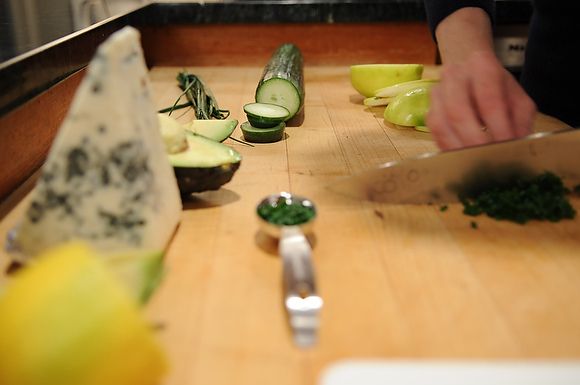
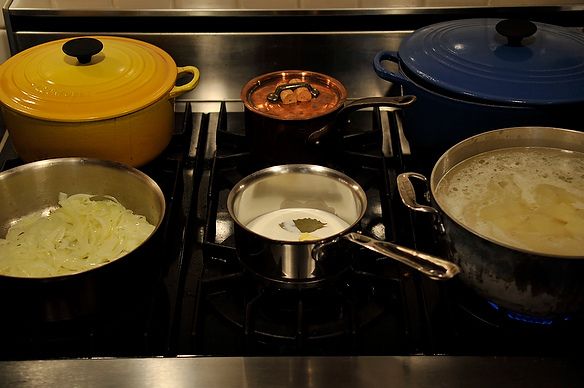
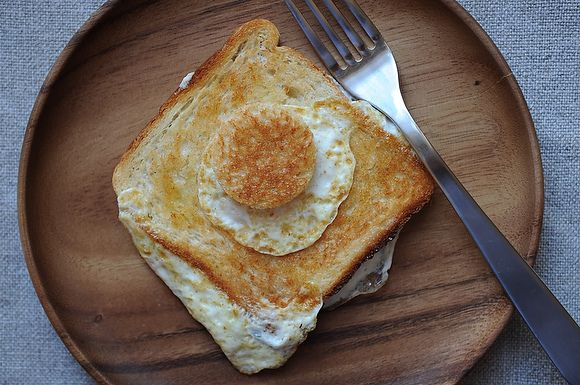
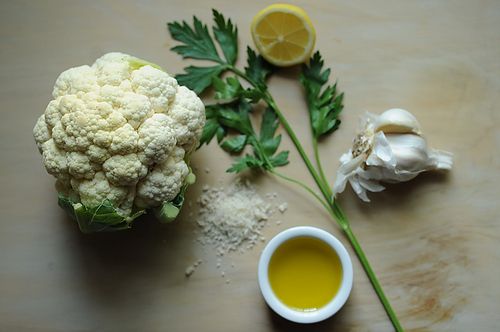
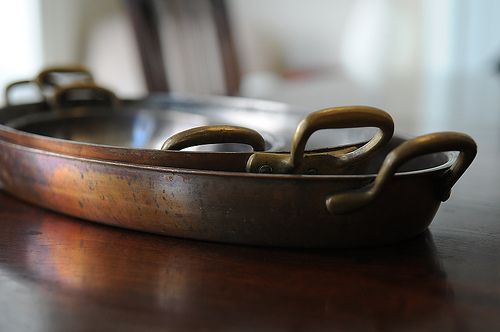

See what other Food52 readers are saying.